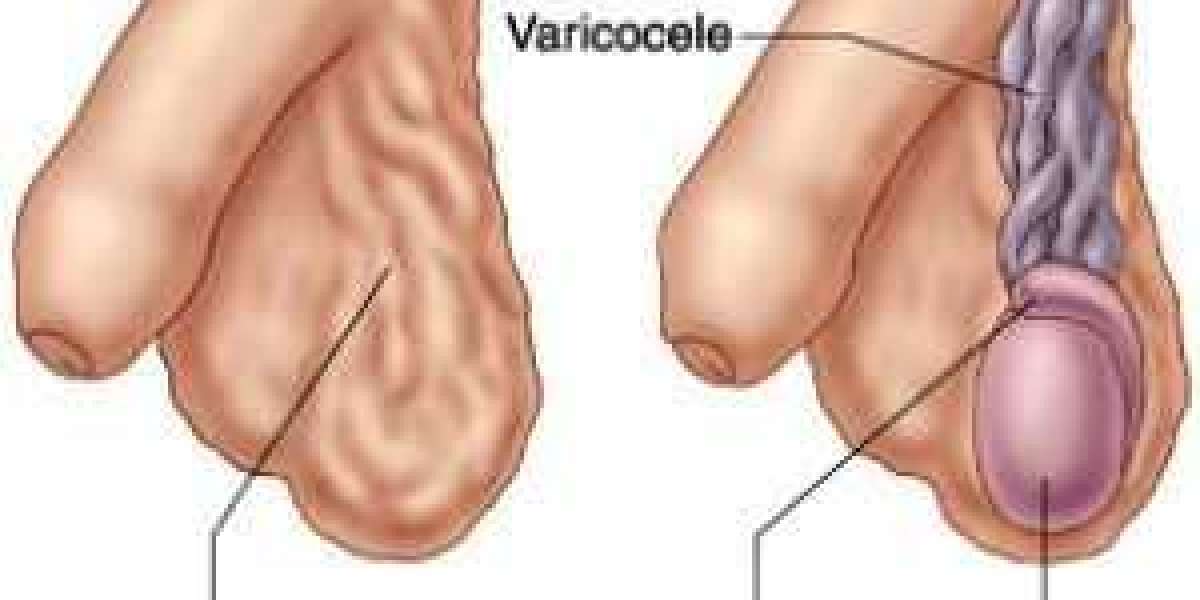Introduction
Varicocele is a condition caused by the enlargement of veins within the scrotum, affecting around 15% of adult males and up to 40% of men with infertility issues. While surgery and other medical options are often discussed, many men don’t realize the potential impact of a simple, daily habit — diet.
The right foods can improve blood flow, reduce inflammation, and support vein health. In this article, we’ll guide you through the Diet for Varicocele Relief: What to Eat to Improve Vein Health, offering practical tips, food lists, and easy changes you can make starting today.
Why Diet Plays a Role in Varicocele Relief
Varicocele is primarily a vascular issue. When the valves inside your veins fail to function properly, blood pools in the scrotal area, leading to swelling, pain, and potential damage to testicular tissue.
What you eat can either support or sabotage your circulatory system. A nutrient-rich diet enhances blood flow, strengthens blood vessel walls, and reduces oxidative stress. On the other hand, poor dietary habits can increase inflammation, worsen vein function, and aggravate your symptoms.
Diet for Varicocele Relief: What to Eat to Improve Vein Health
Let’s break down the foods that can help — and those you should avoid — to promote healing from within.
? Foods That Improve Vein Health and Support Varicocele Recovery
These foods are high in antioxidants, anti-inflammatory compounds, and essential nutrients that support blood vessel function.
1. Leafy Greens
Vegetables like spinach, kale, Swiss chard, and beet greens are rich in magnesium, vitamin K, and nitrates.
Why they help:
Magnesium relaxes blood vessels, while nitrates help widen them, improving circulation. Vitamin K supports vein integrity.
2. Citrus Fruits
Oranges, lemons, limes, and grapefruits are rich in vitamin C and bioflavonoids.
Benefit:
Vitamin C is essential for collagen production, which strengthens vein walls and helps reduce pressure buildup in varicose veins.
3. Berries
Strawberries, blueberries, blackberries, and raspberries contain antioxidants called anthocyanins.
How they help:
These compounds protect veins from oxidative damage and improve capillary strength.
4. Nuts and Seeds
Almonds, walnuts, flaxseeds, and chia seeds are loaded with omega-3s, zinc, and vitamin E.
Nutrient power:
Zinc is crucial for testosterone production and fertility. Omega-3s support blood flow and reduce inflammation.
5. Whole Grains
Brown rice, quinoa, oats, and millet are high in fiber.
Why it matters:
Fiber prevents constipation, which reduces abdominal pressure — an often-overlooked contributor to varicocele aggravation.
6. Garlic and Onions
These natural vasodilators thin the blood and improve circulation.
Pro tip:
Crush fresh garlic and let it sit for 10 minutes before cooking to activate its healing compounds.
7. Legumes
Lentils, chickpeas, black beans, and peas are high in protein and fiber.
Their role:
They help manage blood sugar and reduce oxidative stress — both of which contribute to improved vein health.
8. Fatty Fish
Salmon, sardines, and mackerel provide high-quality omega-3 fatty acids.
Benefit:
They reduce inflammation and support overall cardiovascular health.
9. Turmeric
The golden spice is a powerful natural anti-inflammatory.
Best way to consume:
Add to smoothies, teas, or warm milk for added benefits.
10. Green Tea
Rich in antioxidants called catechins, green tea promotes blood vessel flexibility and reduces inflammation.
? Foods to Avoid When Managing Varicocele
Just as some foods heal, others harm. Avoiding or limiting the following can help improve your symptoms.
1. Fried Foods
Deep-fried items are loaded with unhealthy trans fats that clog arteries and reduce blood flow.
2. Processed Sugar
Sugary drinks, candies, baked goods, and sweetened cereals spike insulin and contribute to chronic inflammation.
Harmful effect:
Sugar damages blood vessels and increases oxidative stress, worsening vein function.
3. Refined Carbohydrates
White bread, pasta, and rice convert quickly into sugar, spiking blood sugar and leading to inflammation.
4. Red and Processed Meats
Bacon, sausages, and steaks are high in saturated fats, which promote plaque buildup and vein stiffness.
5. Alcohol
It dehydrates the body, impairs circulation, and can lower testosterone levels when consumed in excess.
6. Caffeinated Soft Drinks
They offer no nutritional value, can contribute to dehydration, and often contain excessive sugar.
? Sample Daily Meal Plan for Varicocele Support
Breakfast:
– Oats with chia seeds, banana, and walnuts
– Green tea or turmeric latte
Mid-Morning Snack:
– Handful of almonds and a citrus fruit
Lunch:
– Quinoa salad with spinach, tomatoes, chickpeas, olive oil, and lemon juice
– Fresh berries on the side
Evening Snack:
– Unsweetened yogurt with flaxseeds or a boiled egg
Dinner:
– Grilled salmon or tofu
– Steamed broccoli and brown rice
– Herbal tea (e.g., chamomile)
? Lifestyle Tips to Boost Your Diet’s Impact
Incorporating these lifestyle habits will maximize the benefits of your varicocele-friendly diet:
Stay Hydrated: Drink at least 2–3 liters of water daily. Hydration improves blood viscosity and circulation.
Exercise Gently: Light cardio, yoga, and pelvic stretches support blood flow in the groin area.
Wear Supportive Underwear: Briefs or supportive athletic wear can help reduce pain during activity.
Avoid Long Sitting Sessions: Stand, walk, or stretch every 30–60 minutes to prevent blood pooling.
Practice Stress Management: Chronic stress raises cortisol, which impacts testosterone and vascular health.
? Supplements That May Support Vein Health
Always consult your doctor before starting new supplements. Some commonly recommended options include:
Zinc: Supports male reproductive health
Vitamin C E: Strengthen blood vessel walls
Horse Chestnut Extract: May reduce swelling and improve circulation
Omega-3 Fatty Acids: Decrease inflammation
Rutin (from citrus): Improves vein tone and reduces leakage
FAQs About Varicocele and Diet
1. Can diet alone cure varicocele?
Diet won’t reverse the condition completely, but it can significantly reduce symptoms, improve comfort, and support overall reproductive health.
2. How long before I see results from dietary changes?
Most people notice improvements in energy, pain levels, and digestion within a few weeks. Vein health can take longer — around 2 to 3 months of consistent change.
3. Is fasting good for varicocele?
Intermittent fasting may help reduce inflammation, but it should be approached carefully and under guidance, especially if you have other health concerns.
Conclusion
Diet alone might not cure varicocele, but it can be a powerful part of your healing journey. Choosing the right foods can reduce inflammation, support vein health, and improve fertility naturally. By following a Diet for Varicocele Relief: What to Eat to Improve Vein Health, you’re giving your body the tools it needs to heal from the inside out.
Small daily choices — a salad instead of fries, water instead of soda — add up over time. You don’t have to be perfect, but consistent effort goes a long way.








